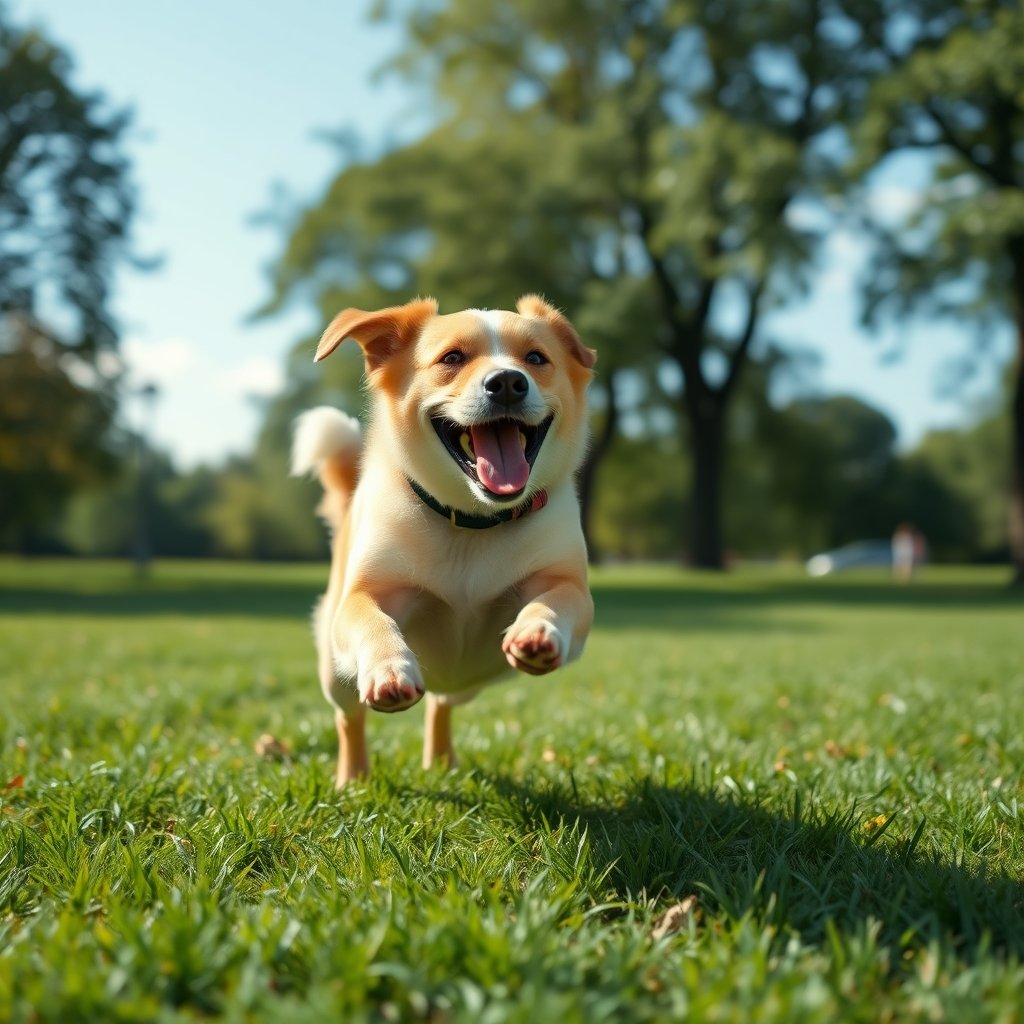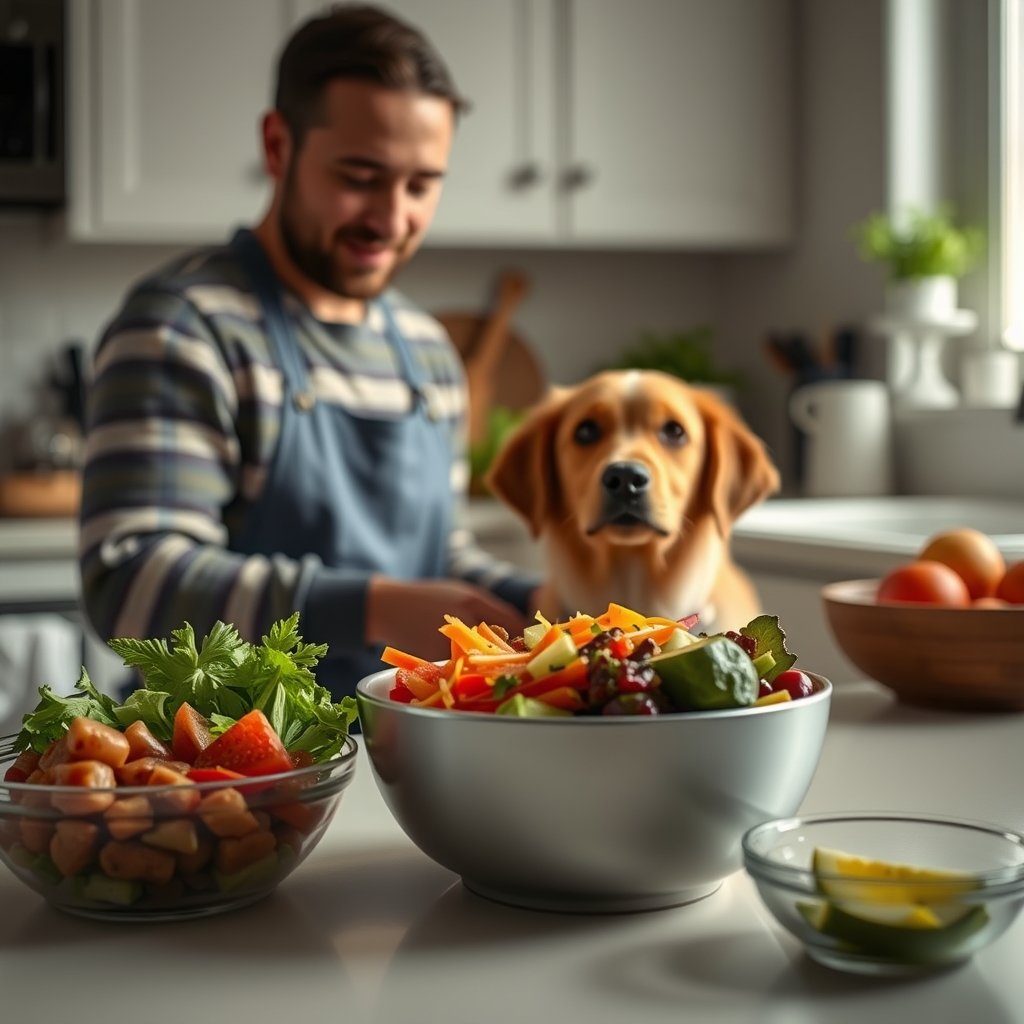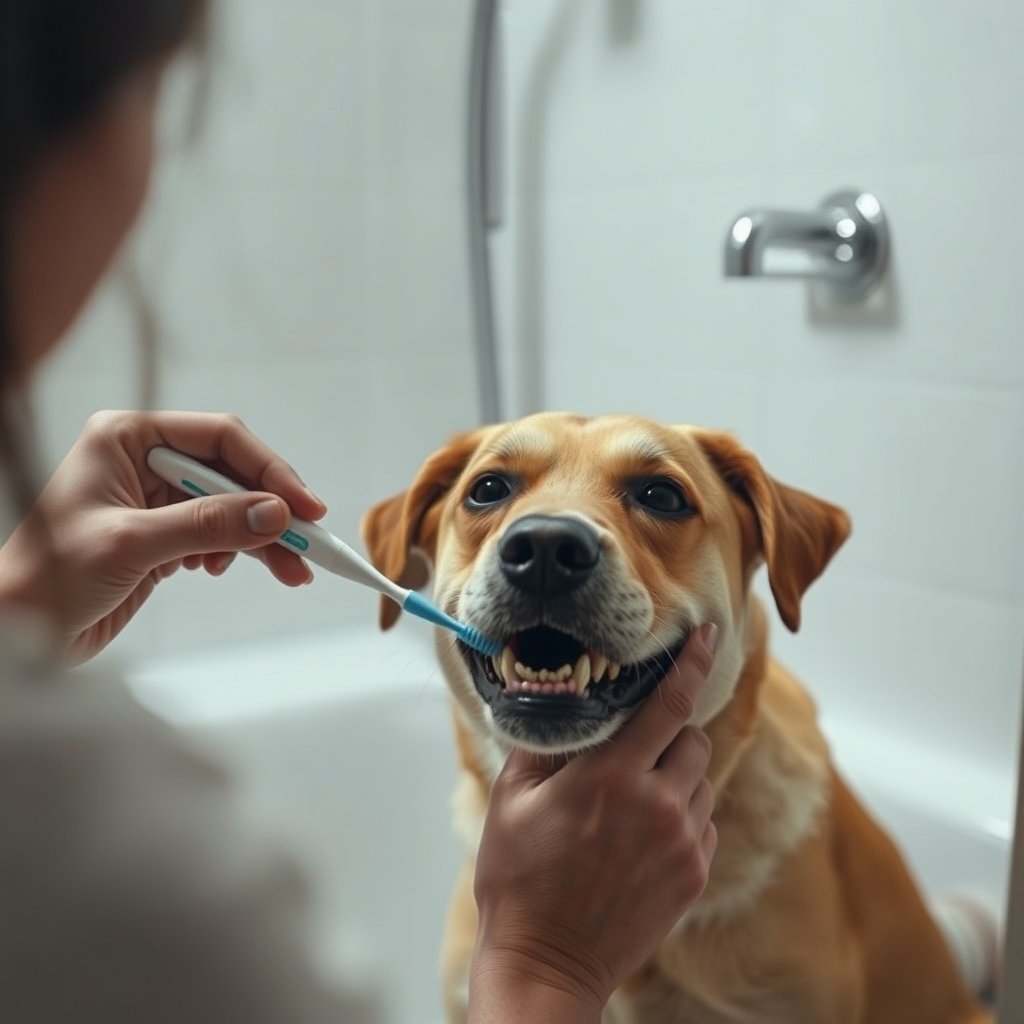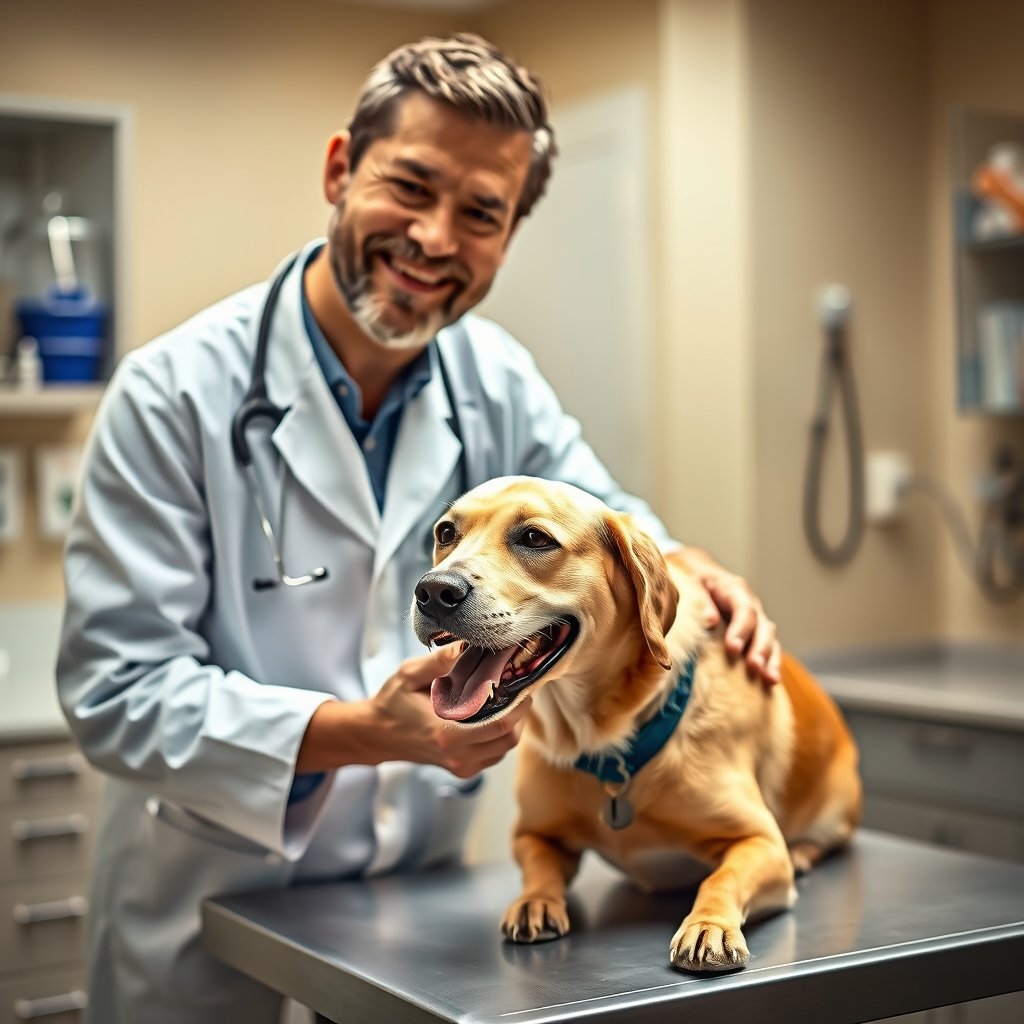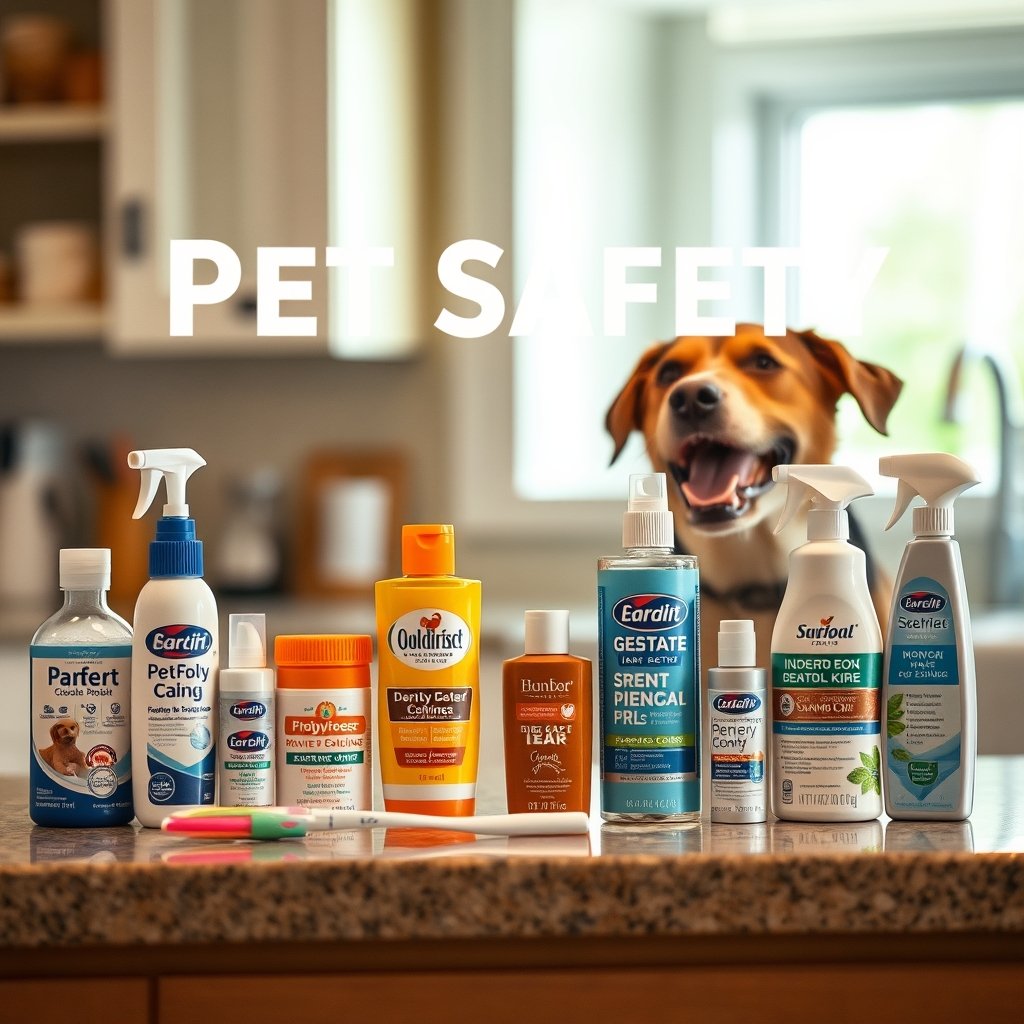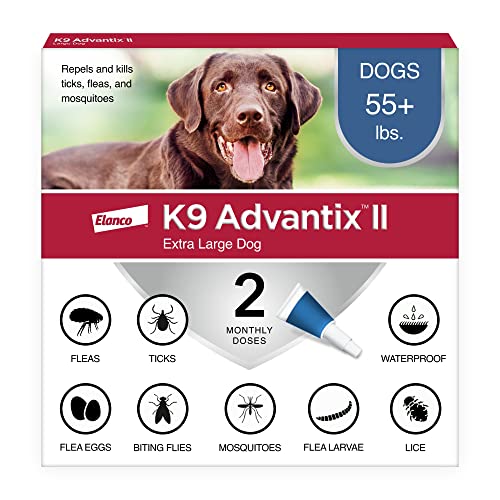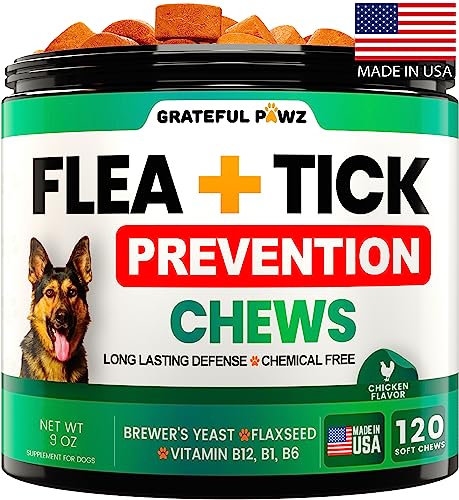Simple Ways to Improve Your Dog's Health
As a dog owner, you want to do everything you can to keep your furry friend happy and healthy. Here are 10 simple ways you can improve your dog's health:
Simple Ways to Improve Your Dog's Health
Ensuring that your furry friend lives a long, happy, and healthy life is a top priority for every dog owner. There are numerous simple, everyday ways to enhance your dog’s health and well-being. Here are ten effective strategies that can make a significant difference.
1. Adopt a hollistic approach to your dog's health
Start by adopting a holistic approach that encompasses a balanced diet, regular exercise, mental stimulation, and proper grooming. Prioritize daily activities and routines that nurture both the physical and emotional needs of your dog. This can include walks, interactive playtime, and positive reinforcement training, all of which contribute to a happier and healthier dog.
2. Natural Remedies for Improving Your Dog’s Health at Home
Many dog owners seek natural alternatives to support their dog's health. Herbs like chamomile can help with digestive issues, while coconut oil may promote a healthy coat. Always consult your vet before introducing new remedies, as some natural products can interact with medications or may not be suitable for all dogs. Creating a natural healing environment involves nutrition, safe herbs, and holistic practices, which can be powerful for everyday health maintenance.
3. How to Improve Your Dog's Health with Regular Exercise
Exercise is crucial for maintaining a healthy weight and promoting mental well-being in dogs. Aim for at least 30 minutes to two hours of activity per day, depending on your dog’s age, breed, and health condition. Activities can include daily walks, fetch, or even dog sports like agility training. Engaging your dog physically not only improves their cardiovascular health but also helps alleviate behavioral issues caused by boredom or excess energy.
4. Easy Dietary Changes to Enhance Your Dog's Health
Diet plays a crucial role in your dog’s overall health. Consider these dietary changes:
- Incorporate Fresh Foods:Adding fresh fruits and vegetables like carrots, green beans, or blueberries can provide essential vitamins.
- *Choose Quality Dog Food: Opt for high-quality brands with real meat listed as the first ingredient and avoid fillers like corn or soy.
- Control Portion Sizes: Adjust your dog’s portion according to their activity level to prevent obesity.
- Consider Special Dietary Needs: Consult with your veterinarian if your dog has allergies or health issues that require a specific diet.
5. Tips for Maintaining Your Dog's Dental Health Effectively
Dental health is critical for your dog's overall wellness. Poor dental hygiene can lead to serious health issues, including heart disease. Brush your dog’s teeth regularly using canine toothpaste, and provide dental chews that help reduce plaque. Scheduling regular dental check-ups with your vet is also essential to catch any issues early and maintain your dog’s oral health.
6. How to Improve Senior Dog Health Through Lifestyle Changes
As dogs age, their health needs change. To improve the health of senior dogs:
- Adjust Their Diet:Senior dog food is formulated to be lower in calories but higher in fiber and enriched with vitamins and supplements for joint health.
- *Regular Health Check-Ups: Senior dogs need more frequent vet visits to monitor conditions such as arthritis or kidney disease.
- Modify Exercise Levels:While they still need exercise, it should be tailored to avoid overexertion. Gentle walks and light play can help maintain mobility without strain.

7. Signs Your Dog Needs a Health Improvement Plan
Recognizing when your dog needs extra care can help you intervene early:
- Weight gain or loss
- Changes in appetite or drinking habits
- Excessive scratching or licking
- Lethargy or decreased activity level
- Bad breath or dental issues
- Changes in mood or behavior
- Vomiting or diarrhea
- Difficulty getting up or lying down
- Persistent coughing or sneezing
- Increased urination or accidents in the house
If you observe any of these signs, consult your veterinarian for a complete assessment and discussion on a health improvement plan.
8. Simple Grooming Tips That Promote Better Dog Health
Grooming is not just for looks; it’s vital for your dog’s health. Regularly brushing your dog's coat can prevent matting, promote a healthy shine, and reduce shedding. Bathing your dog using a suitable shampoo can help maintain coat health and hygiene. Additionally, check and clean your dog's ears and trim their nails regularly to prevent discomfort and infections.
9. How to Improve Your Dog's Mental Health and Wellness
Mental stimulation is just as essential as physical exercise. Engage your dog with puzzle toys, training exercises, and interactive play. Consider varying their routine with new experiences, such as trips to different parks or introducing new toys. Socialization with other dogs and people can also greatly enhance your dog's mental health and confidence.

10. Importance of Regular Vet Check-Ups for Dog Health
Regular veterinary visits are crucial for maintaining your dog’s health. Vets can provide vaccinations, dental care, and screenings for various conditions that can arise as your dog ages. Establish a routine visit schedule, typically once a year healthier dogs, and bi-annually or more frequently for senior dogs. These check-ups can detect potential issues early on, leading to better outcomes.
10 Simple Supplements to Boost Your Dog's Overall Health
Consider incorporating supplements into your dog's diet, but always consult your vet first. Some beneficial options include:
- Omega-3 fatty acids:for joint and skin health.
- *Glucosamine: for joint support, particularly in older dogs.
- Probiotics: to aid digestion and improve gut health.
- *Antioxidants: to boost the immune system, especially in older dogs.
These supplements can enhance your dog's health by promoting optimal bodily functions.
12. Ways to Reduce Stress and Improve Your Dog's Health
Dogs, like humans, can experience stress. Provide a safe space for them to retreat during noisy or busy times. Engage in relaxing activities such as gentle brushing or calming massages. Introducing calming products like pheromone diffusers or anxiety wraps can also help alleviate stress. Ensuring your dog feels secure and relaxed contributes significantly to their overall health.
13. Improving Your Dog’s Health Through Hydration and Nutrition
Proper hydration is critical to your dog’s health. Always ensure your dog has access to fresh, clean water, especially during walks or play. A hydrated dog is less likely to develop urinary issues or kidney problems. Pair their hydration with a balanced diet that supports their specific health needs to promote optimal well-being.
14. How to Create a Balanced Routine for Your Dog’s Physical Health
Establishing a daily routine helps dogs feel secure and improves their health. Include scheduled feeding times, regular walks, play sessions, and quiet time. This rhythm can prevent behavior issues and promote better physical health. Tailor the routine to your dog’s age, breed, and energy level for maximum benefits.
Conclusion
Improving your dog's health doesn’t have to be overwhelming. By implementing these simple strategies, you can foster a healthier, happier life for your furry friend. Remember, every dog is unique, so consult with your veterinarian about the best approaches tailored for your pet's specific needs. With your care and attention, your dog will thrive for years to come!
By following these simple tips, you can help to improve your dog's health and keep them happy and healthy for years to come. Remember, your dog's health is important, so take the time to care for them and give them the best possible life.




